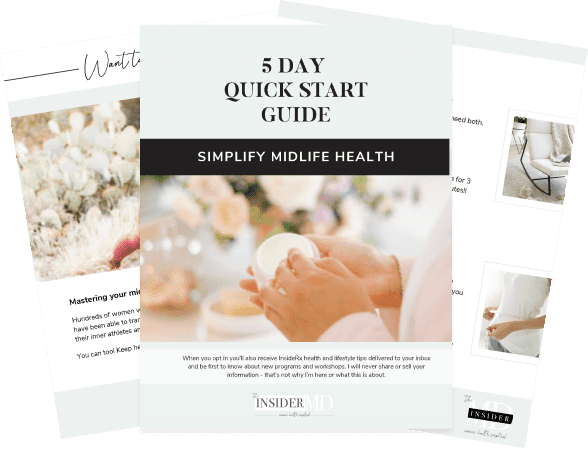
6 Things Women Want Men To Know About Menopause
There is a lack of knowledge and a lot of misinformation about menopause, but not just for women. Surveys show that men know very little, if anything, about menopause. The transition from the reproductive years to menopause is a natural stage of a woman’s life, but we don’t tend to prepare and talk about it the same we do with puberty and childbirth.
Being prepared by having good information, education, and support can help both men and women navigate this normal transition.
What Women Want Men to Know About Menopause
We all do better when we understand each other and know what to expect. Here’s what women want men to understand.
Perimenopause can last for years.
The average age of menopause in the U.S. is 51, but the transition to menopause, called perimenopause, typically occurs in the early 40’s and is when symptoms begin. Perimenopause symptoms, such as irregular periods, hot flashes, night sweats, mood changes and insomnia, occur because estrogen — the main female hormone made by the ovaries — rises and falls unevenly until menopause is reached and ovulation stops completely. Symptoms can wax and wane, and last anywhere from 4 to 12 years or longer, with an average of 7 years.
Sex can be uncomfortable.
Changes in the hormones estrogen and progesterone in and around menopause can cause vaginal dryness, and pain during sex. Women might begin to avoid sex, not because they are rejecting their partner, but because it has become physically uncomfortable. Men may become worried about causing pain. Nothing has gone wrong here. There is simply a normal physical change that needs to be addressed. There are good remedies that can solve the problem in almost all cases. In one survey, only 6% of men were aware of the availability of vaginal lubricants to treat the symptoms. That’s why talking is so important. Don’t avoid intimacy; embrace it with communication, and a little lubrication.
Menopause can feel lonely.
A lot of men are deeply uncomfortable talking about menopause, leaving women feeling isolated and alone to manage. Women want men to talk with them about all of their symptoms, not just about problems with sexual intercourse. Sensitivity to all the symptoms will increase her self-confidence and making love will be more pleasurable. Learning to have these discussions is awkward at first, but can bring you closer to each other, help reduce her stress and yours and deepen your bond as a couple. Men can also help by participating in better sleep habits as a couple, and by starting an exercise or healthy eating plan together.
There is a paradox in the media’s understanding of women.
The perimenopause experience, coupled with normal aging, is compounded by the negative messages to women in our youth obsessed society. The media message to women is clear: Age matters. Looks matter. Older women are devalued and often rendered invisible, even though there are an estimated 65 million menopausal women in the US! The paradox is that, older women actually have better emotional well being than younger women. A study using a sample of women from the National Survey of Midlife Development in the US, found that,women in their 20’s and 30’s had far greater anxiety about declines in health and attractiveness than women in their 50’s. Worrying about getting older was worse than actually getting older. Men can help support women through the perimenopause years by recognizing that the media narrative is incorrect and promotes double standards. Women at midlife are strong, wise, experienced and confident. They want men to value the richness of that maturity and focus on working together as a couple to intentionally support each other through the changes of midlife.
Connection is important.
Women still want to feel sexy and romantic during perimenopause and menopause. Feeling sexy and valued doesn’t have to involve sex and can make a big difference in how she sees herself and the two of you as a couple. Women want men to make it a point to keep dating them. Schedule a romantic dinner or hold hands on a walk. Keeping connected through challenging times brings trust, bonding, and an inner peace that will have a positive impact on your relationship and a ripple effect all around you.
This Too Shall Pass.
The most important thing for both men to realize is that perimenopause is a normal, natural transition in life. And transitions end. After menopause, many of the bothersome symptoms a woman may have experienced before menopause gradually improve. And, as a man, it’s always helpful to talk about any symptoms you are having with your partner as well. Keeping an open dialogue and a caring attitude makes the whole experience better for both of you.

MEET DR. ELLEN
My mission is to bring you the most up-to-date, proven medical information, simplified, so you can make confident, educated decisions about your health.
I'M LOOKING FOR...
grab your 5 day
quick start guide



